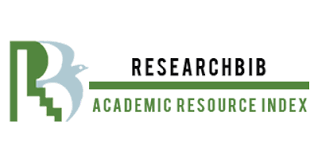THE METHOD OF IMPROVING YOUNG LEARNERS COMMUNICATIVE SKILLS
Keywords:
practical strategies, Effective communication, literature study, communicative skillsAbstract
Effective communication is a foundational skill for young learners, especially in the context of language education. The development of communicative skills in children not only enhances their ability to interact and express themselves but also builds the basis for academic success, emotional intelligence, and social competence. This article explores methods to improve young learners' communicative skills, focusing on practical strategies that are supported by research findings.
References
1.Bamberg, M. (2004). Talk, small stories, and childhood development. Cambridge University Press.
2.Bruner, J. (1996). The culture of education. Harvard University Press.
3.Ellis, R. (2003). Task-based language learning and teaching. Oxford University Press.
4.Johnson, D. W., & Johnson, R. T. (1989). Cooperation and competition: Theory and research. Interaction Book Company.
5.Kao, S. M., & O'Neill, J. (1998). Dialogue and drama in language learning: New perspectives and practices. Routledge.
6.Krashen, S. (1985). The input hypothesis: Issues and implications. Longman.
7.Lightbown, P. M., & Spada, N. (2006). How languages are learned (3rd ed.). Oxford University Press.
8.Ludke, K. (2016). Language games in the classroom: Engaging children in language learning. Language Teaching Research, 20(4), 447-460.
9.Slavin, R. E. (1995). Cooperative learning: Theory, research, and practice. Prentice Hall.
10.Willis, J. (1996). A framework for task-based learning. Longman.







